10 Foods That Lower Cholesterol, According to Dietitians

Having high “bad” cholesterol, or low-density lipoprotein (LDL) cholesterol, can cause fatty buildups in the arteries, narrowing the passageway for blood to flow and, in turn, increasing your risk of heart attack, stroke, and peripheral artery disease (PAD), explains the American Heart Association (AHA). When combined with high levels of triglycerides—which are the most common type of fat in the body that usually comes from butter, oils, and excess calories—LDL cholesterol can further lead to heart attack and stroke. This all might sound very medical-y and scary, but luckily, doctors and dietitians say there are plenty of foods that lower cholesterol that you can add to your diet.
“By incorporating the right foods into your daily meals, you can actively work to lower LDL (‘bad’) cholesterol, boost HDL (‘good’) cholesterol, and improve overall heart health,” confirms Jennifer Habashy, NMD, assistant medical director at Claya and Strata. Read on to hear from her and other experts about the top cholesterol-friendly foods.
RELATED: 7 Supplements That May Actually Lower Your Cholesterol, According to Doctors.
1
Oats
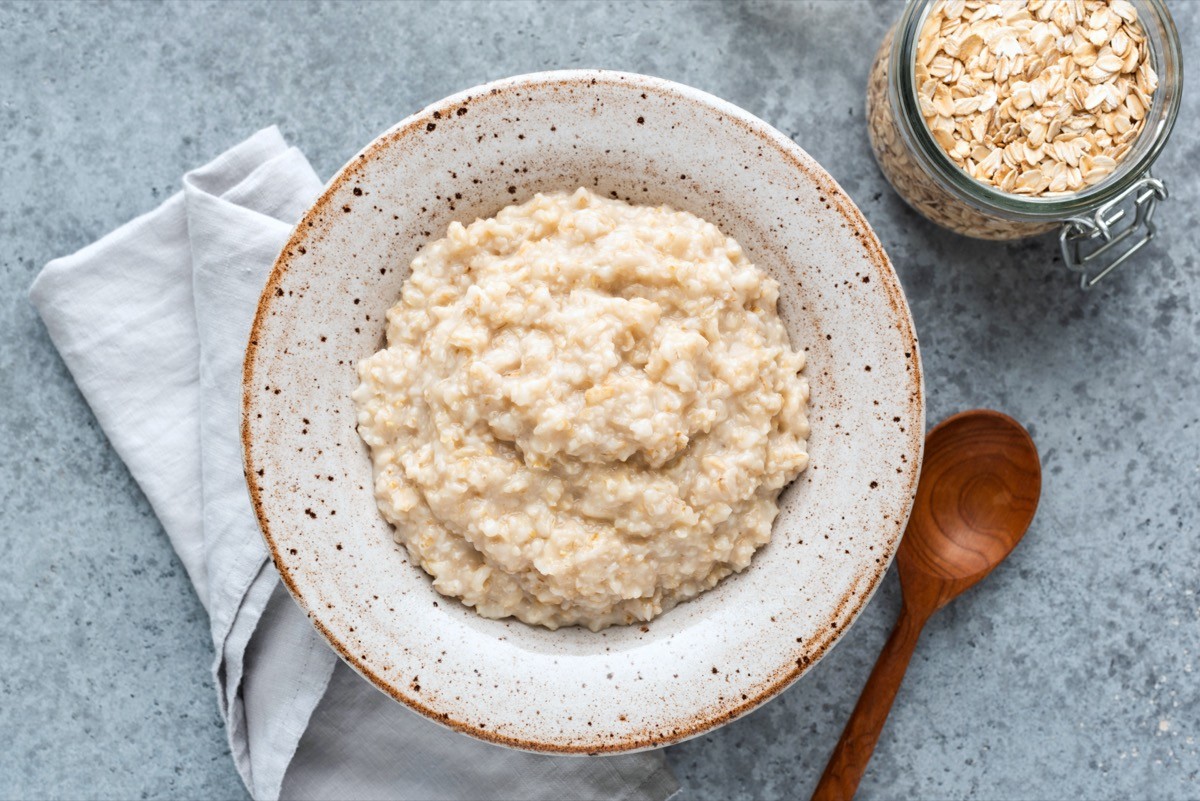
Of all the foods on this list, oats are the most recommended by professionals because they are so high in soluble fiber, specifically beta-glucan.
“Think of soluble fiber as a sponge that soaks up cholesterol in your digestive tract, preventing it from entering your bloodstream,” explains Elizabeth Katzman, FDN, a functional diagnostic nutrition practitioner, somatic coach, and founder of Strong Choices.
Habashy notes that, according to studies, just 3 grams of beta-glucan per day can reduce LDL cholesterol by 5 to 10 percent.
To put that in perspective, “A bowl of oatmeal made from 3/4 cup of dry oats contains 3 grams of soluble fiber. A serving of cooked oat bran cereal (3/4 cup) has 2.2 grams, and 1 cup of oat flakes has around 1.5 grams,” shares Joan Salge Blake, RDN, a nutrition professor and registered dietitian nutritionist at Boston University, author of Nutrition & You, and host of the podcast Spot On!
2
Beans and other legumes
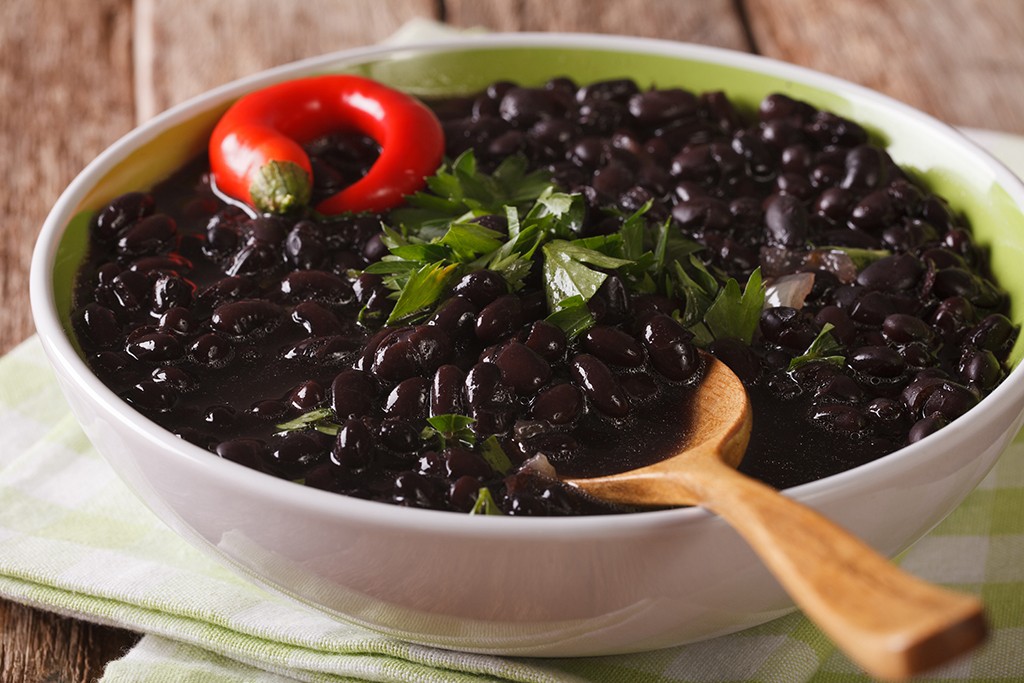
Beans and lentils are also great sources of soluble fiber. “One cup of black beans has 4.8 grams of soluble fiber, while Navy beans have 4.4 grams, and light-red kidney beans have 4 grams,” notes Salge Blake.
The added benefit of legumes is that they are high in protein (they’ll help keep you full) and low in saturated fat, adds registered dietitian Dalia Beydoun, MS, RD. “I often suggest swapping out meat a few times a week with lentils or your favorite beans to support healthy cholesterol levels,” she suggests.
3
Apples and citrus fruits
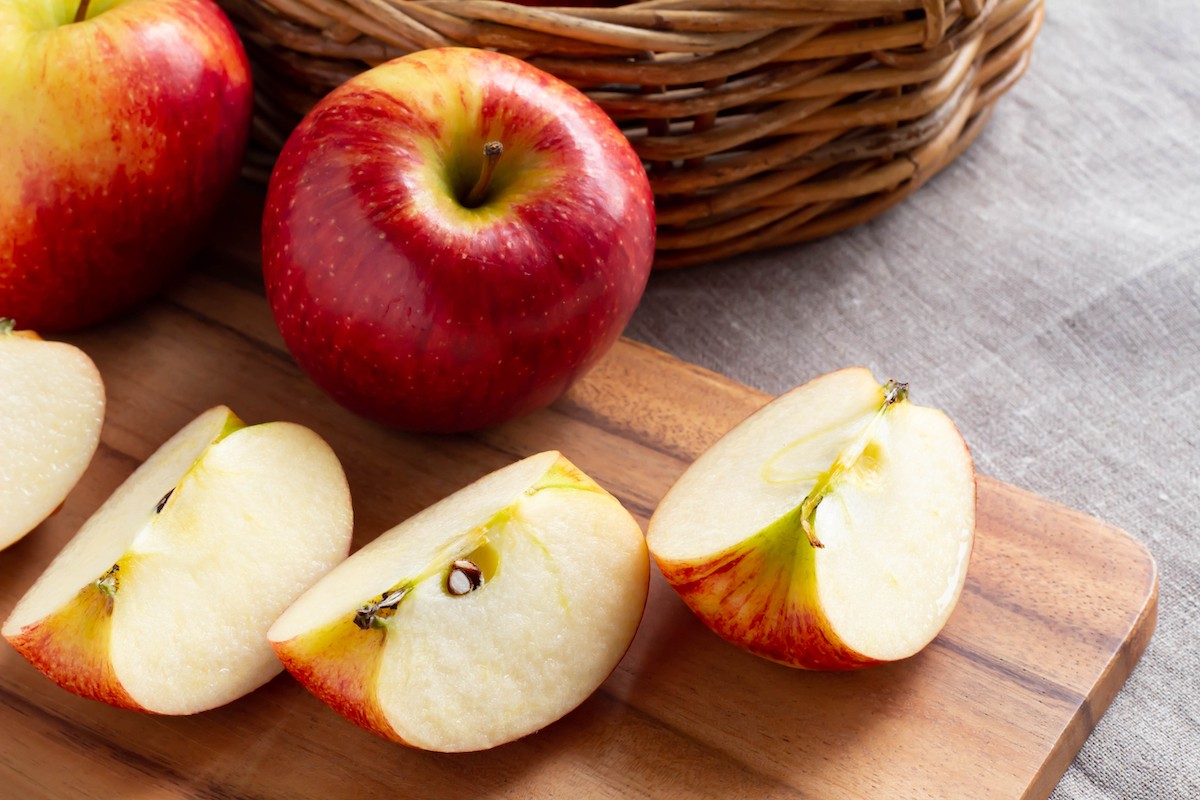
Apples and citrus fruits offer a sweet way to up your soluble fiber intake. For instance, one small orange has 1.8 grams of soluble fiber, Salge Blake points out.
However, apples also contain pectin, “a type of [soluble] fiber that reduces cholesterol by forming a gel in the intestines, which lowers cholesterol absorption and helps eliminate it from the body,” explains Michelle Routhenstein, RD, cardiology dietitian at EntirelyNourished.com.
RELATED: Eating These 7 Foods Can Lower Your Blood Sugar, Doctors Say.
4
Nuts
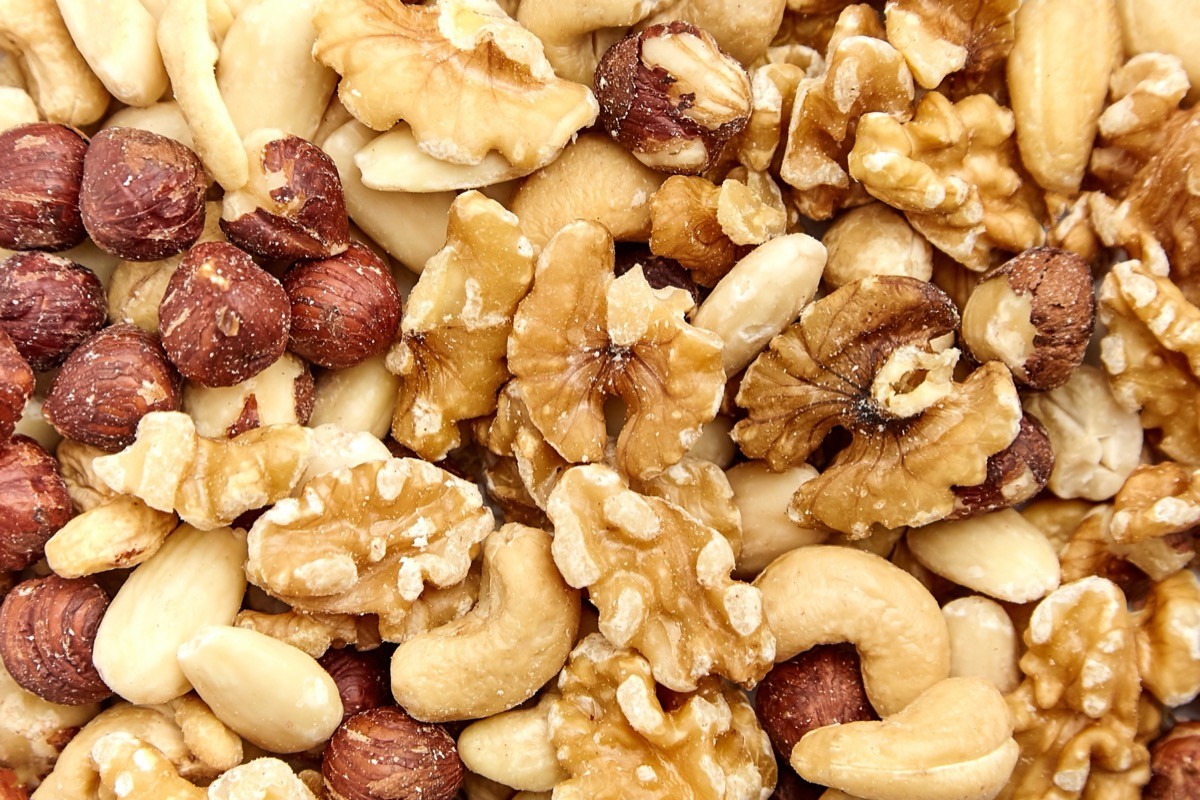
“Nuts provide heart-healthy monounsaturated and polyunsaturated fats, which help lower LDL cholesterol,” shares Habashy. “They also contain plant sterols, compounds that block cholesterol absorption in the gut.”
In fact, a 2018 study published in the journal Nutrients found that consuming 1.5 to 3 grams of plant sterols a day can lower LDL cholesterol by 7.5 to 12 percent.
“Just keep portion sizes in check (a small handful is plenty) since nuts are calorie-dense,” notes Katzman.
5
Flaxseed and chia seeds
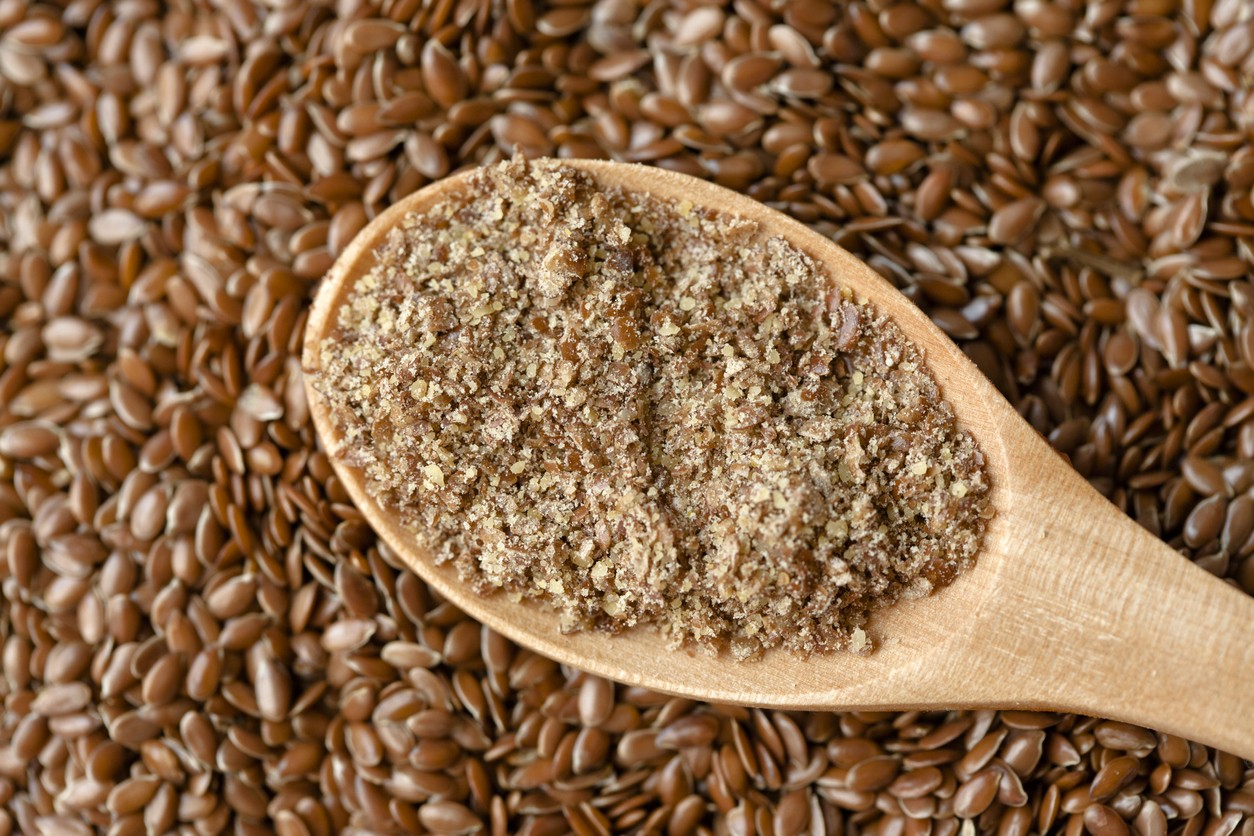
Sprinkle some flaxseed in your oatmeal or add it to a smoothie for a cholesterol-friendly meal addition. Likewise, you can add fiber-rich chia seeds to yogurt or granola bars.
“Flaxseeds have an impressive 1.1 grams of soluble per tablespoon,” says Salge Blake. And just two tablespoons of chia seeds contain about 40 percent of the daily recommended fiber intake, Lauren Ramsey, MD, MBA, a breast cancer surgeon and medical content creator, previously told Best Life.
Both chia seeds and flaxseeds also contain plant-based omega-3 fatty acids, which can “lower LDL cholesterol and reduce inflammation in blood vessels,” explains Jaclyn Fodor, RD, LD, a dietitian at Nutrition Counseling of New England.
6
Fatty fish

Speaking of omega-3s, fatty fish like salmon, mackerel, and sardines are packed with this nutrient.
“Omega-3 fatty acids found in fatty fish help lower triglycerides, reduce inflammation, and improve the size and density of LDL particles, making them less harmful,” says Habashy. “They also support higher HDL levels, which help remove excess cholesterol from the bloodstream.”
Sabrina Solt, PhD, NMD, owner of Solt Medical, adds that omega-3s “support endothelial function, keeping blood vessels flexible and reducing clot risk.”
RELATED: Longevity Expert Says Avoid Eating the “Poisonous 5 Ps” If You Want to Live to 100.
7
Extra virgin olive oil
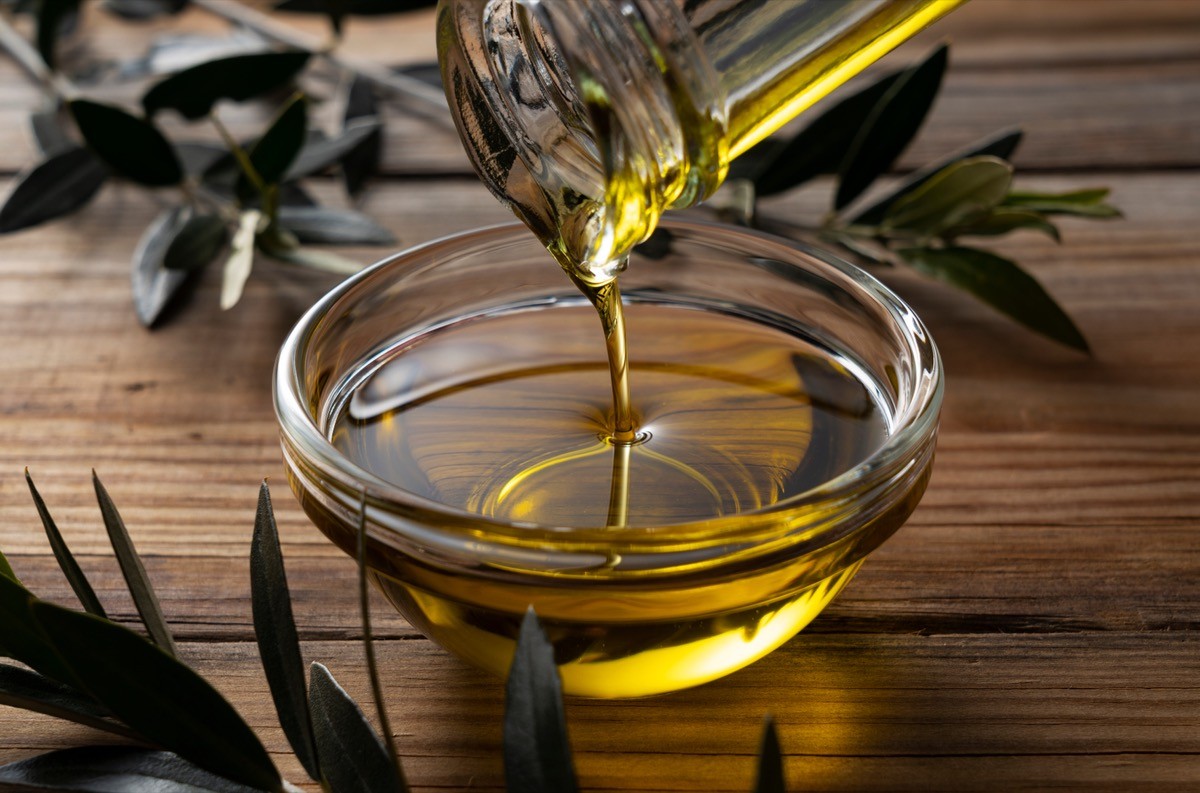
Corn oil, soybean oil, and partially hydrogenated oils are all high in saturated fats and low in monounsaturated fats like omega-3s. But extra virgin olive oil is a cholesterol-friendly choice.
“Extra virgin olive oil contains polyphenols and monounsaturated fats, which reduce LDL cholesterol oxidation (a key step in plaque formation) and improve blood vessel function,” explains Habashy.
8
Avocados
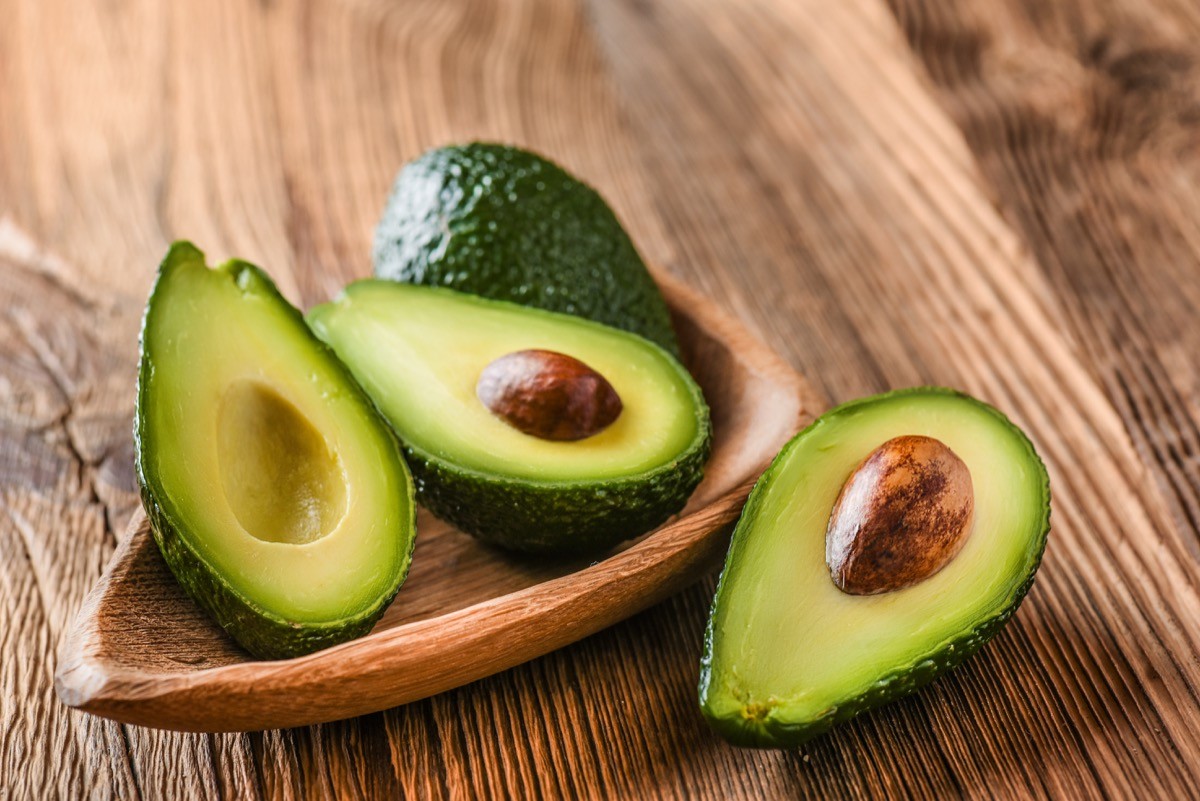
For similar reasons to olive oil, Habashy next recommends adding avocados to your diet.
“Avocados are rich in monounsaturated fats, which have been shown to reduce LDL cholesterol while maintaining or even increasing HDL levels,” she says. “They also contain fiber and antioxidants that support overall cardiovascular health.”
9
Berries
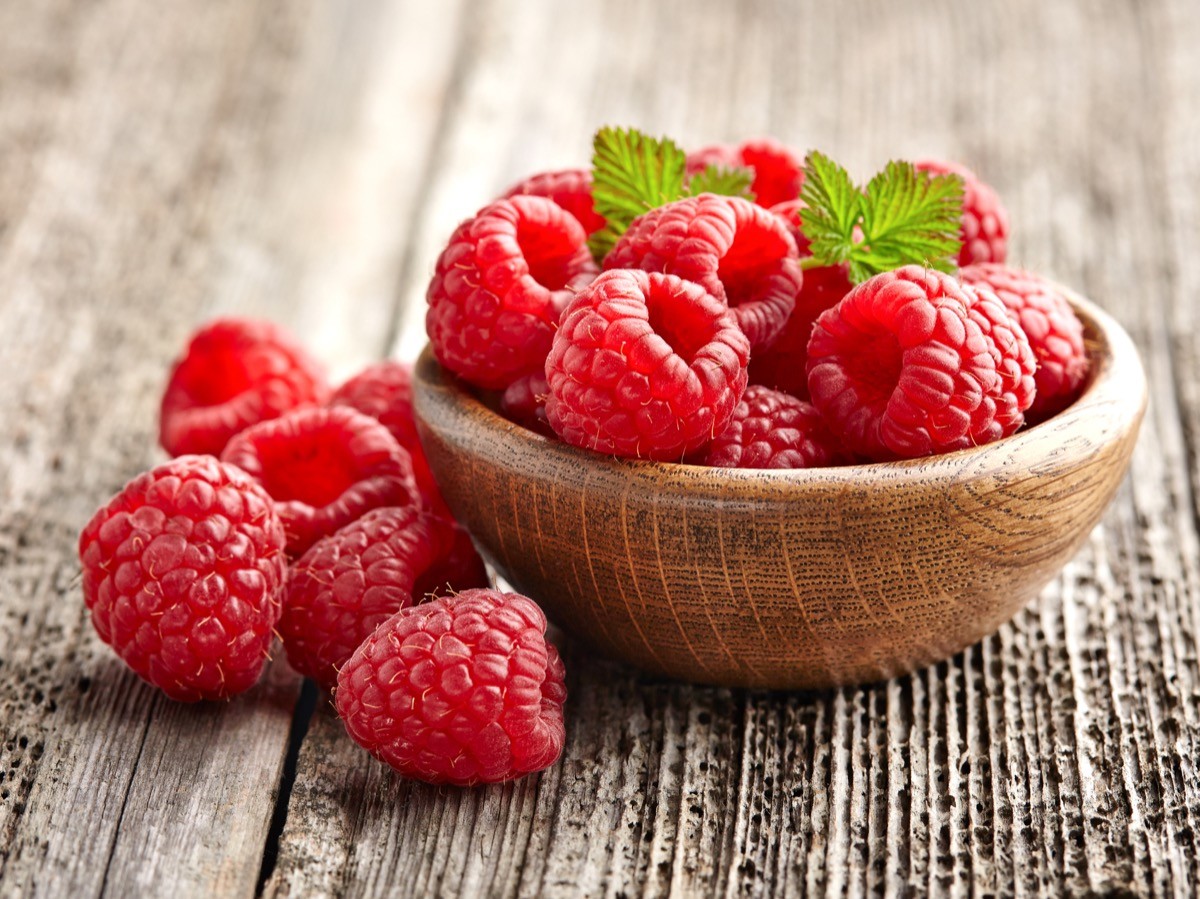
“Berries are packed with fiber and polyphenols, which help lower LDL oxidation and reduce inflammation, both key factors in heart disease prevention,” notes Habashy. “Their natural sweetness makes them a great alternative to processed, high-sugar snacks.”
As Best Life previously explained, not all berries are created equally, though. Raspberries and blackberries have between 7.5 and 8 grams of fiber per cup, but blueberries and strawberries only have about 3.4 grams.
10
Leafy greens
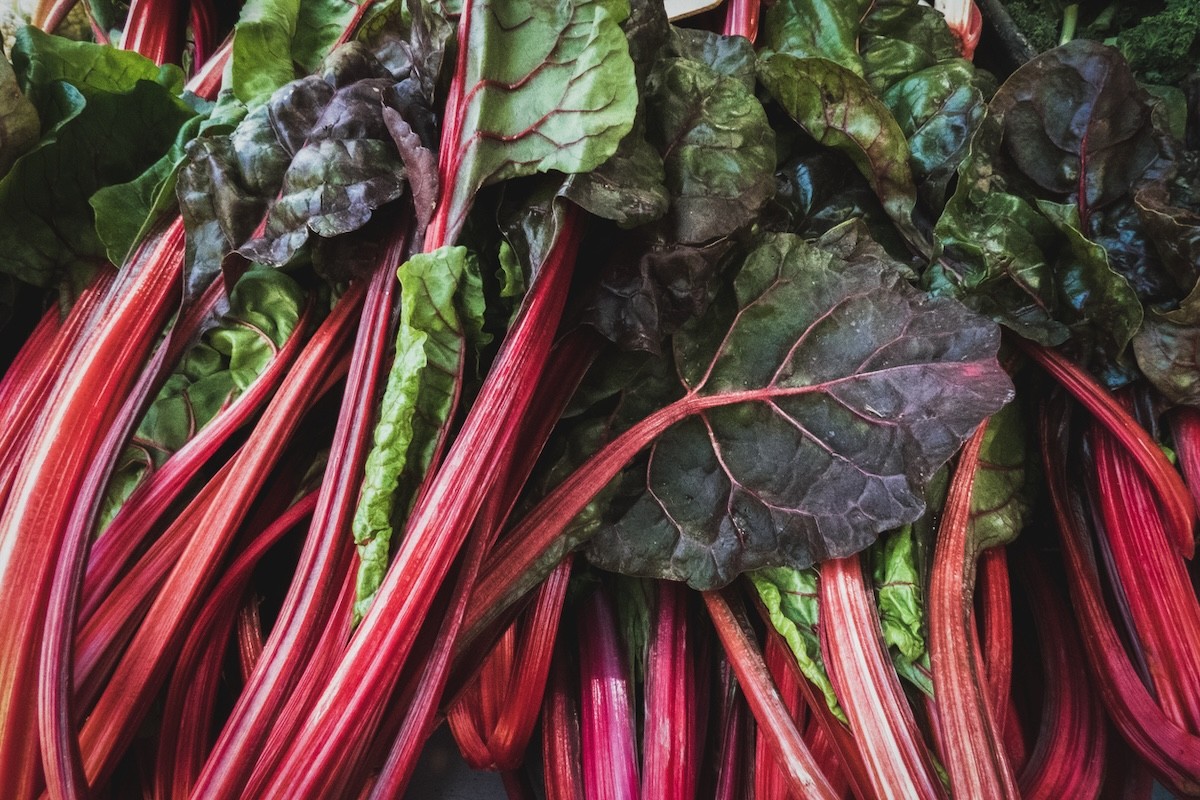
Dark leafy greens like spinach and kale “contain lutein and other carotenoids that help prevent cholesterol from being absorbed into the bloodstream,” shares Habashy. “They also have fiber and plant sterols, further reducing cholesterol levels.”
Swiss chard is another leafy green superfood to consider. In addition to the benefits already mentioned, this veggie is high in magnesium and potassium, “which help regulate blood pressure by balancing sodium levels and relaxing blood vessels,” Wade Lightheart, a certified sports nutrition advisor and President of BIOptimizers, previously told Best Life.
Chard also contains the antioxidants betalains, which Lightheart said “help support a healthy inflammatory response and oxidative stress.”
Remember, these foods are just part of a bigger cholesterol picture.

Katzman points out that while these foods can certainly help lower cholesterol, they are best utilized as part of an overall healthy lifestyle.
“Regular exercise, maintaining a healthy weight, and avoiding smoking are just as important,” she says. Habashy also recommends keeping stress in check and avoiding foods with trans fats.
“And if you’re dealing with high cholesterol, it’s always a good idea to chat with your doctor or a registered dietitian for personalized advice,” Katzman advises.